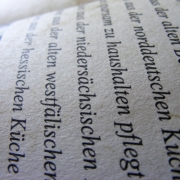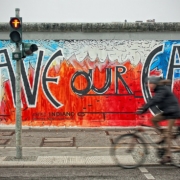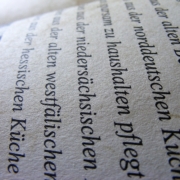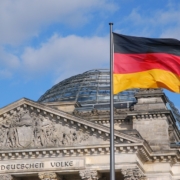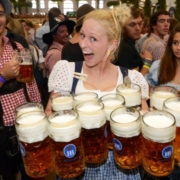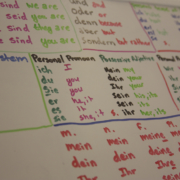Party in Berlin? Then, you should learn these 10 typical German expressions
Berlin is famous for its alternative and excessive night life as much as Hamburg and Cologne. The international newspaper Deutsche Welle points out some words we should know to get ready for a night out in the German capital city.
FEIERABEND
Ready for a wild night in town? First thing first, it’s important to be stress-free from work. And Germans have the right word to mean the end of a working day: Feierabend, which literally means “holiday evening”. Unless you are a professional DJ, not every day can end with a party. But every Feierabend, is a good chance to join one.
AUFBREZELN
After work, a pit stop at home is what you need to start your night in the best way. Especially if you’re planning to go to an elegant and chic party. In this case, you should “dress up to kill”. Aufbrezeln just means this. High heels and a touch of lipstick for girls and a fresh shirt for boys are the necessary requirements. You never know where the night will end up. You could meet someone interesting.
VORGLÜHEN
Going out in group can be both funny and cheap. Having a drink or maybe two or three with friends is a good excuse to break the ice. Vorglühen is the German word for this. German bier might not always be loved by everyone but you have to admit that after one or two bottles you feel your feet above the ground. And ready to conquer the world.
WEGBIER
If you take a bier with you before the party, you can call it Wegbier or “take away bier”. In Germany, drinking bier on the streets is legal, as long as you behave and keep yourselves together.
AFTER-WORK PARTY
The number of after-work parties is increasing in the last years. What seems to be a retirement party, it is an actual after work party.
TÜRSTEHER
If you are going to a chic area of Berlin and Hamburg, it’s necessary to pass the bouncers which in German are called “Türsteher”. It literally means “the one who stays at the door” and somehow, surveils it.
AUF EX
If your German friends tell you to finish your drink “auf ex”, you better be ready to what is going to happen next. It believed to come from Latin but there is no document to prove it. Although, the translation is clear: kill your drink in one sip.
DÄMMERUNG
It’s the moment between day and night. And between night and day. So the beginning and the end of the day in one word. And if it was a cool night, it’s more likely that it will finish in the Dammerung.
NACHTSCHWÄRMER
The moment between twilight and down is when the night owls come out from their caves, offices and houses and head to bars, pubs and clubs. In one hand, residents complain about the screams and noise in the night. But in the other hand, bars’owners and taxi drivers thank the NachtSCHWÄRMER for their contribute to the city’s finance.
KATER
The term has two meanings and somehow, a bit ambuguous. Kater is the German version of ‘male cat’ but it means ‘hangover’ as well. The feeling that everyone knows after a wild night out. Also, Kater, comes from the Greek word ‘catarrh’. Which seems weird. The right English word is Hangover but, anyway, who cares about the meaning? Especially after an amazing night.




